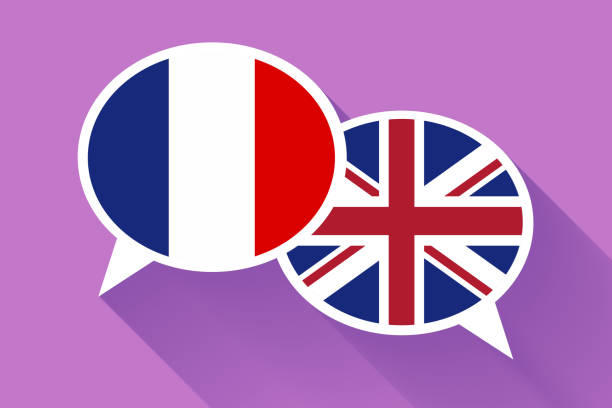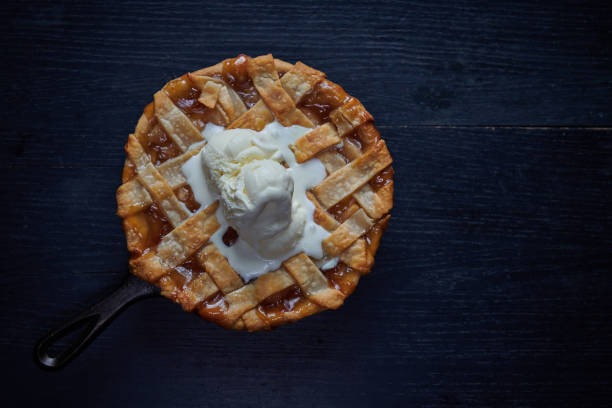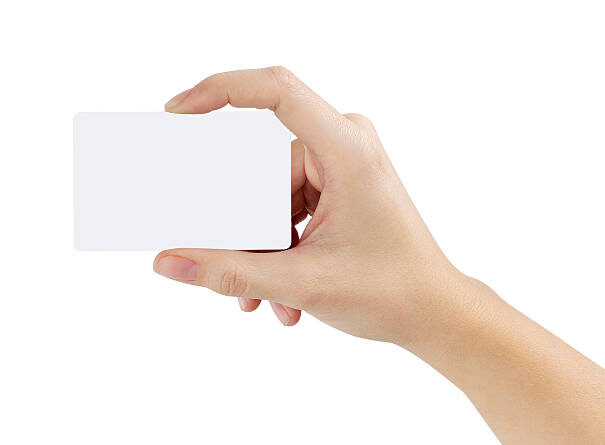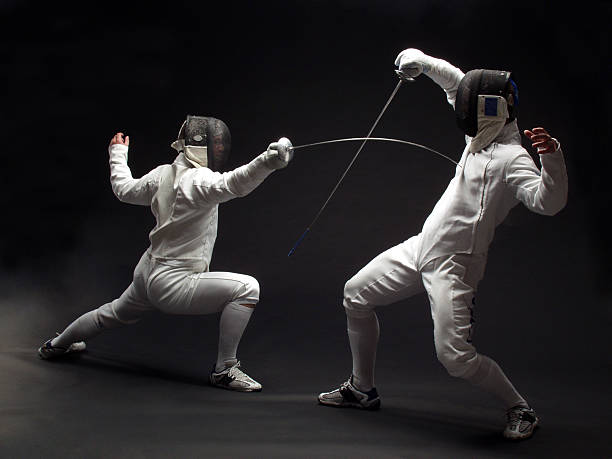You’re probably aware that we regularly use plenty of French words in English.
But did you know that English is so close to the French language, that around 30% of English words come from the language of love?
Some of these French phrases in English (otherwise known as cognates!) are borrowed directly from the French language, while others have evolved from French origins.
We’ve put together some responses to some of the most common questions about the French presence in the English language for you, plus 99 examples of how English words didn’t fall too far from the French tree.
Everything you’ve ever wanted, right?
Why are there French words in the English language?
The origin of the English language is a topic linguists love to debate.
Although English is a Germanic language, it shares a lot of vocabulary with French – a Romance language.
But why?
The Norman Conquest of 1066 was a key event that led to French words being used in England.
Following the conquest, England was ruled by the Normans who spoke a northern form of Old French called Anglo-Norman French.
Under Norman rule, Anglo-Norman French began to influence the language of administration, law and culture in England, and hence making its mark on the English language.
Since then, French phrases and words – funny quirks and all – continued to make their way into the English language.
And French isn’t the only language that has made its mark on the English language. There are plenty of Spanish words in English, and a good handful of Japanese words in English, too.
How many French words are there in English?
There exists around 7,000 French words in the English language at present.
Believe it or not, though, there were plenty more English words that came from French (and typically Latin) roots originally – around 10,000, to be exact.
Do any examples come to mind? At this point, I’m sure you’re desperate to see some examples of English words with French origins…
Let’s start with 99 (we thought any more might be a bit much!).
Here are 99 common French words used in English, and their meaning
- Allowance – from the Old French word alouance (payment)
- Apostrophe – from the French word apostrophe
- Attaché – from the French word attaché (attached)
- Apéritif – from the French word apéritif
- Avant-garde – from the French word avant-garde
- Aviation – from the French word aviation
- Bachelor – from the Anglo-Norman word bacheler (bachelier in modern French)
- Baguette – from the French word baguette (stick)
- Ballet – from the French word ballet
- Beret – from the French word béret
- Bon voyage – from the French phrase bon voyage (have a good journey)
- Brunette – from the French word brunette
- Bureau – from the French word bureau (desk, office)
- Cabaret – from the French word cabaret
- Cadet – from the French word cadet
- Champagne – from the French word champagne
- Chauffeur – from the French word chauffeur
- Chic – from the French word chic (elegant)
- Cliché – from the French word cliché
- Connoisseur – from the French word connoisseur
- Cul-de-sac – from the French word cul-de-sac (bottom of the bag/sack)
- Debris – from the French word débris (broken, crumbled)
- Déjà vu – from the French words déjà (already) and vu (seen – past participle of ‘voir’)
- Delegate – from the Old French word delegat
- Detour – from the French word détour (from détourner)
- Dossier – from the French word dossier
- Eau de toilette – from the French word eau de toilette
- Elite – from the Old French word elit (chosen)
- Energy – from the Middle French word énergie
- En route – from the French en route
- Envisage – from the French word envisager
- Expatriate – from the French word expatrier
- Facade – from the French word façade
- Faux, as in faux fur – from the French word faux (false)
- Faux-pas – from the French word faux pas
- Fiancé – from the French word fiancé
- Film noir – from the French word film noir (a film genre)
- Gallery – from the Old French word galerie
- Gastronomy – from the French word gastronomie
- Gateau – from the French word gâteau
- Gazette – from the French word gazette
- Heritage – from the Old French word eritage (héritage in modern French)
- Homage – from the Old French word homage
- Hotel – from the French word hôtel
- Identity – from the Middle French word identité
- Illusion – from the Old French word illusion
- Insult – from the Middle French words insult (noun) and insulter (verb)
- Irony – from the Middle French word ironie
- Jubilee – from the Middle French word jubile (modern French jubilé)
- Kilogram – from the French word kilogramme
- Lacrosse – from the Canadian French word la crosse (the stick)
- Laissez-faire – from the French word laissez-faire (leave things to take their course)
- Liaison – from the French word liaison
- Literature – from the Old French word littérature
- Machine – from the Middle French word machine
- Magnificent – from the Middle French word magnificent
- Maisonette – from the French word maisonette
- Massage – from the French word massage
- Menu – from the French word menu
- Metabolism – from the French word métabolisme
- Metro – from the French word métro
- Musketeer – from the French word mousquetaire
- Navy – from the Old French word navie
- Neutral – from the Middle French word neutral
- Nocturnal – from the Middle French word nocturnal
- Novel – from the Old French word novel
- Occasion – from the Middle French word occasion
- Omelette – from the French word omelette
- Optimism – from the French word optimisme
- Papier-mâché – from the French word papier-mâché
- Parasol – from the French word parasol
- Poetic – from the Middle French word poétique
- Premiere – from the French word première
- Purify – from the Old French word purifier
- Recipient – from the Middle French word récipient
- Rendez-vous – from the French word rendez-vous (appointment)
- Reservoir – from the French word ‘réservoir’ (collection place)
- Restaurant – from the French word restaurant
- Ricochet – from the French word ricochet
- Rich – from the French word riche
- Ridicule – from the French word ridicule
- Risqué – from the French word risqué
- Sabotage – from the French word sabotage
- Salad – from the French word salade
- Sentiment – from the Old French word sentement
- Silhouette – from the French word silhouette
- Solicitor – from the Middle French word soliciteur
- Souvenir – from the French word souvenir (memory)
- Soufflé – from the French word soufflé
- Soup – from the French word soupe
- Technique – from the French word technique
- Television – from the French word télévision
- Tournament – from the Old French word tornoiement (tournoiement in modern French)
- Uniform – from the Middle French word uniforme
- Utensil – from the Old French word utensile
- Valid – from the Middle French word valide
- Variety – from the Middle French word varieté
- Vinaigrette – from the French word vinaigrette
- Zest – from the French word zeste
@busuu Guess the origin 🇬🇧-🇫🇷
If you’re an English speaker and you ever thought French was difficult (or a French speaker and ever thought English was difficult!) hopefully, this is something to reassure you: no matter whether you’ve got your French pronunciation accent down or not, the learning process may be easier than you think!
You already have a good understanding of so many French words – why not learn even more today?
There’s so much more to French than these 99 words
We’re Busuu, the language-learning app – and we help people really learn French.
Level up with help from award-winning self-paced courses, support from our community of 120+ million native speakers and more.
We think you might also like…
- How to say “I love you” in French
- 12 best French series on Netflix in January 2023
- 11 great French movies on Netflix to watch in 2023
- 8 funny French phrases you need to know
The percentage of modern English words derived from each language group are as follows:
Anglo-Norman French then French: ~29%
Latin (including words used only in scientific, medical or legal contexts): ~29%
Germanic: ~26%
Others: ~16%
A great number of words of French origin have entered the English language to the extent that many Latin words have come to the English language. 45% of all English words have a French origin.[1][verification needed][better source needed] This suggests that 80,000 words should appear in this list; this list, however, only includes words imported directly from French, such as both joy and joyous, and does not include derivatives formed in English of words borrowed from French, including joyful, joyfulness, partisanship, and parenthood. It also excludes both combinations of words of French origin with words whose origin is a language other than French — e.g., ice cream, sunray, jellyfish, killjoy, lifeguard, and passageway— and English-made combinations of words of French origin — e.g., grapefruit (grape + fruit), layperson (lay + person), mailorder, magpie, marketplace, surrender, petticoat, and straitjacket. This list also excludes words that come from French but were introduced into the English language via a language other than French, which include commodore, domineer, filibuster, ketone, loggia, lotto, mariachi, monsignor, oboe, paella, panzer, picayune, ranch, vendue, and veneer.
English words of French origin can also be distinguished from French words and expressions used by English speakers.
Although French is derived mainly from Latin (which accounts for about 60% of English vocabulary either directly or via a Romance language), it also includes words from Gaulish and Germanic languages (especially Old Frankish). Since English is of Germanic origin, words that have entered English from the Germanic elements in French might not strike the eye as distinctively from French. Conversely, as Latin gave many derivatives to both the English and the French languages, ascertaining that a given Latinate derivative did not come to the English language via French can be difficult in a few cases.
Historical context[edit]
Most of the French vocabulary now appearing in English was imported over the centuries following the Norman Conquest of 1066, when England came under the administration of Norman-speaking peoples. William the Conqueror invaded the British Isles, distributing lands and property to Norman, Breton, Flemish, and French soldiers. As a result, Old French became the language of culture and the administration, evolving into Anglo-Norman French. The majority of the population of England continued to use their Anglo-Saxon language, but it was influenced by the language of the ruling elite, resulting in doublets. Consider for example the words for the meats eaten by the Anglo-Norman nobility and the corresponding animals raised by the Anglo-Saxon peasants: beef/ox, mutton/sheep, veal/calf, pork/pig, or pairs of words pertaining to different registers of language: commence/start, commerce/trade, continue/go on, depart/leave, disengage/withdraw, encounter/meet, maintain/uphold, marry/wed, menace/threat, purchase/buy, revenue/income, vend/sell. Words of French origin often refer to more abstract or elaborate notions than their Anglo-Saxon equivalents (e.g. liberty/freedom, justice/fairness), and are therefore of less frequent use in everyday language. This may not, however, be the case for all English words of French origin. Consider, for example, some of the most common words in English: able, car, chair, city, country, different, fine, fruit, journey, juice, just, part, people, person, place, real, stay, table, travel, use, very, and wait.
After the rise of Henry Plantagenet to the throne of England, other forms of dialectal French may have gained in influence to the detriment of Anglo-Norman French (notably the variants of Anjou where the House of Plantagenet came from, and possibly Poitevin, the tongue of Eleanor of Aquitaine). With the English claim to the throne of France, the influence of the language in use at the royal court of France in Paris increased. The cultural influence of France remained strong in the following centuries and from the Renaissance onward borrowings were mainly made from Parisian French, which became the de facto standard language of France.
Notable fields of French influence[edit]
Feudalism[edit]
Norman rule of England had a lasting impact on British society. Words from Anglo-Norman or Old French include terms related to chivalry (homage, liege, peasant, seigniorage, suzerain, vassal, villain) and other institutions (bailiff, chancellor, council, government, mayor, minister, parliament), the organisation of religion (abbey, clergy, cloister, diocese, friar, mass, parish, prayer, preach, priest, sacristy, vestment, vestry, vicar), the nobility (baron, count, dame, duke, marquis, prince, sir), and the art of war (armour, baldric, dungeon, hauberk, mail, portcullis, rampart, surcoat). Many of these words related to the feudal system or medieval warfare have a Germanic origin (mainly through Old Frankish) (see also French words of Germanic origin).
The Norman origin of the British monarchy is still visible in expressions like Prince Regent, heir apparent, Princess Royal where the adjective is placed after the noun, like in French.
Heraldry[edit]
The vocabulary of heraldry has been heavily influenced by French (blazon, or, argent, sable, gules, passant), for more details see tinctures, attitudes, and charges of heraldry.
Sometimes used in heraldry, some mythological beasts (cockatrice, dragon, griffin, hippogriff, phoenix) or exotic animals (lion, leopard, antelope, gazelle, giraffe, camel, zebu, elephant, baboon, macaque, mouflon, dolphin, ocelot, ostrich, chameleon) draw their name from French. It is also the case of some animals native of Europe (via Anglo-Norman: eagle, buzzard, falcon, squirrel, coney, rabbit, leveret, lizard, marten, ferret, salmon, viper).
Military[edit]
The vocabulary of warfare and the military include many words and expressions of French origin (accoutrements, aide-de-camp, army, artillery, battalion, bivouac, brigade, camouflage, carabineer, cavalry, cordon sanitaire, corps, corvette, dragoon, espionage, esprit de corps, état major, fusilier, grenadier, guard, hors-de-combat, infantry, latrine, legionnaire, logistics, matériel, marine, morale, musketeer, officer, pistol, platoon, reconnaissance/reconnoitre, regiment, rendezvous, siege, soldier, sortie, squad, squadron, surrender, surveillance, terrain, troop, volley). This includes military ranks: admiral, captain, colonel, corporal, general, lieutenant, sergeant. Many fencing terms are also from French.
Politics and economics[edit]
The political/economic lexicon include many words of French origin like money, treasury, exchequer, commerce, finance, tax, liberalism, capitalism, materialism, nationalism, plebiscite, coup d’état, regime, sovereignty, state, administration, federal, bureaucracy, constitution, jurisdiction, district.
Law[edit]
The judicial lexicon has also been heavily influenced by French (justice, judge, jury, attorney, court, case).
Diplomacy[edit]
attaché, chargé d’affaires, envoy, embassy, chancery, diplomacy, démarche, communiqué, aide-mémoire, détente, entente, rapprochement, accord, treaty, alliance, passport, protocol.
Arts[edit]
art, music, dance, theatre, author, stage, paint, canvas, perform, harmony, melody, rhythm, trumpet, note, director, gallery, portrait, brush, pallet, montage, surrealism, impressionism, fauvism, cubism, symbolism, art nouveau, gouache, aquarelle, collage, render, frieze, grisaille.
Architecture[edit]
aisle, arcade, arch, vault, voussoir, belfry, arc-boutant, buttress, bay, lintel, estrade, facade, balustrade, terrace, lunette, niche, pavilion, pilaster, porte cochère.
Aviation and automobile engineering[edit]
France played a pioneering role in the fields of aviation (nacelle, empennage, fuselage, aileron, altimeter, canard, decalage, monocoque, turbine) and automobile engineering or design (chassis, piston, arbor, grille, tonneau, berline, sedan, limousine, cabriolet, coupé, convertible).
Cuisine[edit]
baba au rhum, beef, beef bourguignon, boudin, caramel, casserole, cassoulet, clafoutis, confit, consommé, cream, croissant, custard, filet mignon, fillet, foie gras, flognarde, fondant, fondue, gateau, gratin, madeleine, marmalade, mayonnaise, meringue, mille-feuille, mustard, mutton, navarin, pâté, pastry, petit four, pork, porridge, potage, pudding, puree, ragout, ratatouille, roux, salad, sauce, sausage, soufflé, soup, stew, terrine, trifle, veal, vol-au-vent.
Colours and Other Influences[edit]
Other influences include the names of colours (ecru, mauve, beige, carmine, maroon, blue, orange, violet, vermilion, turquoise, lilac, perse, scarlet, cerise), vegetables or fruits (courgette, aubergine, cabbage, carrot, cherry, chestnut, cucumber, nutmeg, quince, spinach, lemon, orange, apricot), and months of the year (January, March, May, July, November, December).
Terms coined by French people[edit]
Some of the French words that made their way into the English language were coined by French speaking inventors, discoverers or pioneers, or scientists: cinema, television, helicopter, parachute, harmonium, bathyscaphe, lactose, lecithin, bacteriophage, chlorophyll, mastodon, pterodactyl, oxide, oxygen, hydrogen, carbon, photography, stethoscope, thermometer, stratosphere, troposphere.
Named after French people[edit]
Some French words were named after French people (from their family name), especially in the fields of science (ampere, appertisation, baud, becquerel, braille, coulomb, curie, daguerreotype, pascal, pasteurise, vernier), botany and mineralogy (begonia, bougainvillea, clementine, magnolia, dolomite, nicotine), fashion and style or any other cultural aspect (lavalier, leotard, recamier, mansard, chauvinism, kir, praline, saxophone, silhouette, guillotine).
Proper names[edit]
The names of certain cities in non-francophone regions/countries entered English with French spelling (Louisville, Constance, Ypres, Bruges, Louvain, Turin, Milan, Plaisance, Florence, Rome, Naples, Syracuse, Vienna, Prague, Munich, Cologne, Aix-la-Chapelle, Seville, Constantinople).
In North America, the names of some of the Native American peoples or First Nations the French came in contact with first are from French (Sioux, Saulteaux, Iroquois, Nez Perce, Huron, Cheyenne, Algonquin). It is also the case of some place names such as Canada, Arkansas, Illinois, Maine, Michigan, Vermont, Baton Rouge, Boise, Chicago, Des Moines, Detroit.
Main patterns of influence[edit]
Some words from Old French have been imported again from Middle French or Modern French, but have generally taken a more restrictive or specialised meaning the second time. Consider for instance these doublets : chair/chaise, chief/chef, luminary/luminaire, liquor/liqueur, castle/château, hostel/hotel, mask/masque, necessary/nécessaire, petty/petit, ticket/etiquette, troop/troupe, vanguard/avant-garde. Note that the word in French has kept the general meaning: e.g. château in French means «castle» and chef means «chief». Even when not imported several times in different forms, loanwords from French generally have a more restrictive or specialised meaning than in French: e.g. legume (in Fr. légume means «vegetable»), gateau (in Fr. gâteau means «cake»).
In some cases, the English language has been more conservative than the French one with Old French words, at least in spelling if not in pronunciation: e.g. apostle (O.Fr. apostle / M.Fr. apôtre), castle (O.Fr. castel or chastel / M.Fr. château), forest (O.Fr. forest / M.Fr. forêt), vessel (O.Fr. vaissel / M.Fr. vaisseau). Other Old French words have even disappeared from Modern French: dandelion.
On the other hand, a move to restore the classical roots (Latin or Ancient Greek) occurred in the 16th and 17th centuries. Thus words from Old French saw their spelling re-Latinized. Although in most cases this did not affect their pronunciation (e.g. debt, doubt, indict, mayor), in some cases it did (e.g. abnormal, adventure, benefit). The ph transcription of words of Greek etymology was restored instead of the f. Thus fantosme became phantom, fesan became pheasant. This move occurred also in French, although less systematically: Old French farmacie became pharmacie («pharmacy»), fenix became phénix («phoenix»), but fantosme became fantôme («phantom, ghost») and fesan became faisan («pheasant»).
Beside re-Latinization that blurred the French origin of some words (e.g. peradventure), other modifications in spelling have included folk etymology alterations (e.g. andiron, belfry, crayfish, female, gillyflower, gingerbread, penthouse, pickaxe, pulley).
Furthermore, the spelling of some words was changed to keep the pronunciation as close to the original as possible (e.g. leaven), whereas in other cases the French spelling was kept and resulted in totally different pronunciation than French (e.g. leopard, levee).[2] Terms that most recently entered the English language have kept French pronunciation and spelling (ambiance, aplomb, arbitrage, armoire, atelier, barrage, bonhomie, bourgeoisie, brochure, bureau, café, camaraderie, catalogue, chandelier, chauffeur, coiffure, collage, cortège, crèche, critique, debris, décor, dénouement, depot, dossier, élite, entourage, ennui, entrepreneur, espionage, expertise, exposé, financier, garage, genre, glacier, intrigue, liaison, lingerie, machine, massage, millionaire, mirage, montage, panache, penchant, personnel, plaque, promenade, rapport, repertoire, reservoir, routine, sabotage, sachet, souvenir, tableau, terrain, tranche), though this may change with time (e.g. the initial h in hotel is not silent anymore, consider also the evolving pronunciation of herb, or garage). Expressions like femme fatale, faux pas, haute couture, bête noire and enfant terrible are still recognisably French.
Borrowings are not a one-way process (See Reborrowing), some words of French origin ultimately come from Old English (Anglo-Saxon words): e.g. bateau, chiffon, gourmet. While conversely English words of French origin made their way «back» into Modern French: budget, challenge, design, discount, establishment, express, fuel, gay, gin, humour, interview, jury, management, mess, pedigree, rave, record, reporter, spleen, sport, squat, standard, suspense, tennis, ticket, toast, toboggan, tunnel, vintage.
A–C[edit]
D–I[edit]
J–R[edit]
S–Z[edit]
See also[edit]
- Influence of French on English
- Glossary of French words and expressions in English
- Law French
- Glossary of fencing (predominantly from French)
- Glossary of ballet (predominantly from French)
- Lists of English loanwords by country or language of origin
- List of English words of Gaulish origin
- List of English words of Latin origin
- List of English Latinates of Germanic origin
- Latin influence in English
- List of French words of Germanic origin
- List of French words of Gaulish origin
- List of French words of Arabic origin
- List of French words of English origin
- List of German words of French origin
References[edit]
- ^ «Why Study French». Athabasca University.
- ^ Leading some to say that «English is just badly pronounced French».
External links[edit]
- Online Etymology Dictionary
- Centre National de Ressources Textuelles et Lexicales (in French)
Almost every language nowadays has some words that are borrowed from other languages. It’s fascinating how many languages still use those words in their original forms.
You already know that there are many French words in English that we use on a regular basis.
But, do you know which words exactly?
Today, there are around 10,000 French words that are still used in modern English. You probably know some of them already, but we’re sure that there’s a lot you haven’t heard of.
That’s why we decided to share with you 101 words that are used in English.
But let’s start from the beginning by understanding how these two languages are connected and why their bond lasts to this date.
French-English connections
We are going to tell you a short story about French and English connection.
The connection between France and England dates back from 1066 when William the Conqueror (Guillaume le Conquerant) took over the British throne.
This is how French became the language of the Anglo-Norman court, the government, and the elite. It also started having a big influence on the administration, law, and culture.
French influence on the English language continued after the Hundred Year’s War.
Today, it is considered that there are around 45% of words in English that originate from the French language.
French words in English with the same meaning
As you can see, these events in history are the reason French words are used in English today.
There are, of course, other languages English has borrowed from, but French is the absolute winner with the coverage of about 58% of the English vocabulary.
In the following paragraphs, you’ll find words that have the same meaning in both French and English and are used in the same situations.
They are called cognates, or to be more specific,
French cognates.
Disclaimer: The first word is written in English and the second one in French. You will see how many of them are written in the same way.
Food-related words
There are plenty of food-related English words that come from French. Over the centuries, they’ve changed a bit, getting English characteristics.
You can find some of them below:
- A la carte — A la carte
- Apéritif – Apéritif
- Aubergine — Aubergine
- Baguette – Baguette
- Café — Café
- Cornichon — Cornichon
- Champagne – Champagne
- Gastronomy – Gastronomie
- Gateau – Gâteau
- Menu – Menu
- Omelette – Omelette
- Picnic- Picnic
- Restaurant – Restaurant
- Salad – Salade
- Soufflé – Soufflé
- Soup – Soupe
- Vinaigrette – Vinaigrette
Fashion and appearance
It’s a known fact that France is the centre of fashion and style. Therefore, it’s not so strange that many words in English concerning fashion come from French.
Let’s take a look at some of them:
- Beret – Béret
- Boutique- Boutique
- Brunette – Brunette
- Chic – Chic meaning elegant
- Couture- Couture
- Eau de toilette – Eau de toilette
- Faux- Faux; meaning false
- Silhouette – Silhouette
- Uniform – Uniforme
Art, culture, and language
We can’t finish this article without mentioning some borrowed words concerning art, culture, and language.
Here they are:
- Apostrophe– Apostrophe
- Attaché– Attaché; literally meaning attached
- Avant-garde – Avant-garde, used mainly in arts
- Ballet – Ballet
- Film noir – Film noir, in the meaning ‘a film genre
- Gallery – Galerie
- Genre- Genre
- Irony – Ironie
- Gazette – Gazette
- Papier-mâché – Papier-mâché
- Poetic – Poétique, used in the Middle French
Other French words used in English
There are many more borrowed words that are used in everyday conversations.
Here are some of them:
- Allowance – from the Old French word alouance, which means payment
- Aviation – Aviation
- Bachelor – Bachelier
- Bon voyage – Bon voyage; translated to English, it means ‘have a good journey.’
- Bouquet- Bouquet
- Bureau – Bureau; it means ‘desk,’ or ‘office.’
- Cabaret – Cabaret
- Carte blanche — Carte blanche; it usually means ‘granting unlimited authority.’ Literally, it can be translated as ‘white card’, as in a blank check
- Chauffeur – Chauffeur
- Cliché –Cliché, which means a phrase that is overused
- Connoisseur – Connoisseur
- Crème de la crème- Crème de la crème; this expression comes from Latin ‘le nec plus ultra’. It can be translated as ‘cream of the cream’ and represents the best person or a thing of a particular kind.
- Cul-de-sac – Cul-de-sac; in English, it means ‘the bottom of the bag/sack.’
- Debris – Débris; the literal meaning in English is ‘broken, crumbled.’
- Déjà vu –Déjà vu; from déjà (already) and vu (seen – past participle of ‘voir’)
- Delegate – Delegat
- Detour – Détour; from French verb détourner, which means ‘divert.’
- Dossier – Dossie
- Elite – Elit; it comes from the Old French, which means ‘chosen.’
- Energy – Énergie
- Entrepreneur — Entrepreneur
- En route – En route
- Et voilà ! — Et voilà ! It’s used to call attention when something is completed or done with success
- Expatriate – from the French word expatrier
- Facade – Façade
- Faux pas — Faux pas; or in English ‘false step’
- Fiancé – Fiancé
- Heritage – Eritage, or Héritage in modern French
- Homage – Homage
- Hotel – Hôtel
- Identity – Identité
- Illusion – Illusion
- Insult – Insult (noun), Iinsulter (verb)
- Jubilee – Jubilé
- Kilogram – Kilogramme
- Lacrosse – La crosse; this word in Canadian French means ‘the stick.’
- Laissez-faire – Laissez-faire; translated to English, it means ‘leave things to take their course.’
- Liaison – Liaison
- Machine – Machine
- Magnificent – Magnificent
- Maisonette – Maisonette
- Massage – Massage
- Metabolism – Métabolisme
- Metro –Métro
- Mirage- Mirage; a natural phenomenon caused by atmospheric optics and the Sun’s rays.
- Musketeer – Mousquetaire
- Navy – Navie
- Neutral – Neutral
- Nocturnal – Nocturnal
- Novel – Novel
- Occasion – Occasion
- Optimism – Optimisme
- Parasol – Parasol
- Par excellence- Par excellence, which can be translated as ‘by excellence’, and it means the ultimate or quintessential
- Premiere – Première
- Purify – Purifier
- Recipient – Récipient
- Rendez-vous – Rendez-vous, which means appointment or a date
- Reservoir – Réservoir, which can be translated as ‘collection place’
- Ricochet – Ricochet
- Rich – Riche
- Ridicule – Ridicule
- Risqué – Risqué
- Sabotage – Sabotage
- Sentiment – Sentement
- Solicitor – Soliciteur
- Souvenir – Souvenir; this word means ‘memory,’ but it’s widely used as a thing that reminds you of places, events, people, etc.
- Technique – Technique
- Television – Télévision
- Tournament – Tournoiement
- Utensil – Utensile
- Valid – Valide
- Variety – Varieté
- Vis-à-vis- Vis-à-vis; it means ‘regarding’ or ‘concerning,’ but the equivalent in English can also be ‘face to face.’
French words in English with different meanings
These words are called
false cognates. It means that they are written the same way, but their meanings are different.
Here are some examples of false cognates in French and English.
-
Actor (not a comedian) — Comédien
-
Bookstore- Librairie; have in mind that this isn’t a library.
-
Currently- Actuelement; note that it isn’t actual(ly)
-
(to) Disappoint — Décevoir; not to deceive
-
Former- Ancient; in English, it isn’t ancient
-
Possible/ Possibly- Éventuelement
-
Publisher- Éditeur; be careful; it isn’t an editor in English.
-
Sensitive- Sensible; in English, it isn’t ‘sensible’ but ‘sensitive.’
-
(to) Summarize- Résumer; note that this word in English isn’t ‘to resume.’
-
(to) Take an exam- Passer un examen; pay attention when using this one.
Conclusion
These words are some common ones, but there are many, many more.
As you could see, over history, both languages influenced each other. Not only that, but a significant impact is also seen in their cultures as well.
French played the leading role in modern English, so it’s not so strange that English speakers find it
easy to learn French. So, if you already speak English, then use that to your advantage and
start learning French.
Are you now ready to learn French?
Book your lesson on Justlearn.

By
Last updated:
February 17, 2023
Did you know that you were already semi-French before actually deciding to learn the language?
At least 29 percent of the English language derives from “le français,” claiming French as the English language’s biggest influence—but wait, it gets better.
While a majority of English words with French roots have morphed, changing spelling and sound, there are endless everyday words we use in English that have remained purely French.
Here are 35 entirely French words that we use in English.
Contents
- 1. À la Carte
- 2. À la Mode
- 3. Attaché
- 4. Avant-Garde
- 5. Bijou
- 6. Bon Voyage
- 7. Bureau
- 8. Carte Blanche
- 9. Chic
- 10. Cliché
- 11. Connoisseur
- 12. Cordon-Bleu
- 13. Coup de grâce
- 14. Cul-de-Sac
- 15. Débris
- 16. Déjà Vu
- 17. Eau de Toilette
- 18. Encore
- 19. En Route
- 20. Exposé
- 21. Façade
- 22. Faux pas
- 23. Femme Fatale
- 24. Fiancé
- 25. Gauche
- 26. Hors-d’œuvre
- 27. Je Ne Sais Quoi
- 28. Laisser faire
- 29. Matinée
- 30. Mirage
- 31. Pot-pourri
- 32. Risqué
- 33. R.S.V.P
- 34. Souvenir
- 35. Touché
- Why We Use French Words in English
Download:
This blog post is available as a convenient and portable PDF that you
can take anywhere.
Click here to get a copy. (Download)
1. À la Carte
Meaning “according to a menu” in French, this phrase refers to choosing individual items off a menu in both languages.
Je voudrais des frites à la carte. (I would like an order of fries on their own.)
2. À la Mode
This means “of the fashion” in French and is a way of describing something trendy right now.
In the US you will also see it used to indicate that a dish is served with ice cream. This must have hopped languages when serving pastry and vanilla ice cream was very fashionable in France.
C’est très à la mode ! (It’s very fashionable!)
3. Attaché
While this one literally means “attached” in French, English uses it to refer to someone who works for an ambassador.
Elle est attachée à l’ambassadeur du Canada. (She’s an attaché* to the Canadian ambassador.)
*The literal translation is “she is attached to the ambassador”
4. Avant-Garde
“Before guard” or “advance guard” are the literal translations of this French phrase.
English speakers know it as an innovative movement in the arts, usually pertaining to artists who are “advanced” in their fields.
The artistic meaning holds in French, but it can also mean the “front line.”
Andy Warhol était un artiste de l’avant-garde. (Andy Warhol was an avant-garde artist)
5. Bijou
The French word for a small gem or jewel, bijou has adopted a completely different meaning in the English language.
Amongst us English speakers, it’s considered a classy way to describe something stylish while implying that it’s small, like a bijou champagne bar.
Je vais vous acheter un bijou ! (I will buy you a jewel/item of jewelry!)
6. Bon Voyage
I think we’ve all heard this one when leaving on a trip of some kind. The French use this phrase to wish someone a “good trip,” and we use it the same way in English.
Bon voyage ! Tu vas me manquer ! (Have a good trip! I will miss you!)
7. Bureau
While the French version of this word refers to a physical desk, it also refers to an office, which is how English uses it.
The English “bureau” tends to be used for more political or governmental offices, such as the FBI (Federal Bureau of Investigation).
Le bureau des finances a refusé mon prêt. (The financial office denied my loan.)
8. Carte Blanche
In English, this means to give someone the opportunity to do whatever they want to do, surrendering to their whim.
The literal translation is “white card” because when armies surrendered they would pass a white card to the enemy for them to write their terms of surrender on.
Nowadays, the French use this phrase the same way as we do!
Il avait carte blanche. (He had the chance to do whatever he wanted.)
9. Chic
French fashion is known for its simple elegance. In French, someone who is chic is well-dressed.
Now we use the same word in English when we see something that resembles that French style of casual class.
Elle est très chic. (She is so well-dressed.)
10. Cliché
In French, this word refers to something that has become so common that it’s overrated. The meaning is the same in English.
Leur mariage était tellement cliché. (Their wedding was so cliché.)
11. Connoisseur
A connoisseur is someone who is very knowledgeable about something—and we use it to mean the same thing in English.
However it’s worth noting that connoisseur is outdated and rarely used in French these days, so you’ll most likely hear connaisseur or connaisseuse (the masculine and feminine forms, respectively) instead.
Il est un connoisseur de vin. (He is a wine connoisseur.)
12. Cordon-Bleu
This literally means “blue ribbon,” and was once given to Bourbon knights of the highest order as a token of appreciation.
It has since changed meaning in French: it either refers to a cook of the highest standard, or a common dish where breaded chicken is cooked with ham and cheese.
In English, we use this phrase only to refer to the dish.
Je veux être un cordon-bleu. (I want to be a really good chef.)
13. Coup de grâce
During wartime, coup de grâce meant a person’s “blow of mercy” from a sword or rifle in a forgiving manner.
Nowadays, both French and English use coup de grâce as a figure of speech to describe a final straw, sort of like “the cherry on top.”
Il n’y avait même pas de moutarde dans mon sandwich, c’était le coup de grâce ! (There wasn’t even mustard in my sandwich, it was the coup de grâce!)
14. Cul-de-Sac
“Butt of a bag,” meaning “bottom of the bag,” is the literal translation of cul-de-sac, though the original meaning has nothing to do with how English or French speakers actually use the phrase.
Cul-de-sac, mostly seen in real-estate writing, is an elegant English way to say the “dead end” of a road. The same phrase is seen as more informal in French.
Cette rue menait à un cul-de-sac. (This road has lead to a dead end.)
15. Débris
You may not have ever thought of this word as being super French, but it certainly is! Both French and English use this word to refer to broken pieces of material.
La bombe a tout transformé en débris. (The bomb turned everything into debris.)
16. Déjà Vu
“Already seen,” is the English translation of the French phrase we associate with that weird feeling of reliving a past experience.
In France you’ll hear this word on a daily basis, because it’s used to express “having re-seen” a person, place or things, not in another life or dimension. In other words, it’s a factual encounter.
The French do believe in the weird phenomenon, but have a different way of spelling it (with a hyphen), déjà-vu. There is no difference in pronunciation though, which is why context is always key!
As-tu déjà vu ce film ? (Have you “already seen” this film?)
J’ai eu un sentiment déjà-vu. (I had [a feeling of] déjà vu.)
17. Eau de Toilette
This translates literally to “toilet water.” However, it doesn’t mean this at all.
Toilette was the word for a dressing table cover and came to be associated with washing and dressing. You may already know that eau de toilette is a light perfume used for washing/dressing.
It now means the same thing in English and French, so you can rest assured that you won’t be sold toilet water at the local grand magasin (department store).
J’ai acheté une bonne eau de toilette. (I bought a good eau de toilette.)
18. Encore
For English speakers, encore is only related to show biz, shouted when you want a performer to return to the stage and continue the show.
In French, encore is used much more commonly as it literally means “again” or “another. “Yet,” “still” or “even” are more intricate translations. “Pas encore,” “not yet,” is commonly used too.
Il y a encore du riz. (There’s still rice left)
Ce n’est pas encore l’heure. (It’s not time yet.)
The best way to see how these words are used differently in French and English is to hear how French flows when spoken by a native.
To do this you can try checking out videos on YouTube, or watching authentic French videos on FluentU.
The bite-sized clips on this language learning platform feature native speakers using the language naturally, in a variety of different situations—think news reports, music videos and inspiring talks.
The videos also come with interactive subtitles that will help you understand more about how words are used and when. You can even add them to flashcards or quiz yourself on them later.
Plus, if you prefer learning on the go, you can download FluentU on iOS and Android.
19. En Route
This literally means that something is “on the way” and will probably be used in reference to a delivery or someone driving somewhere.
Votre paquet est en route. (Your package is on the way.)
20. Exposé
This literally translates to “exposed.” As a noun, it was originally used to mean an explanation that exposed the reasoning of a decision.
It now means an in-depth tabloid story exposing something scandalous about a public figure. This word means the same thing in France as well.
C’était un exposé sur la star qui avait fait la carrière de Hannah. (It was a tabloid scandal of the star that made Hannah’s career.)
21. Façade
Façade has multiple uses. For one, it’s a fancy word in English for telling someone they’re “fake,” or more nicely, “putting up a front.”
“Frontage” or “face” is the literal English translation of this French word, but more commonly, in both English and French, façade is the “front” or “side” of a building.
La façade de cette maison est ancienne. (The façade of this house is old.)
22. Faux pas
This literally translates to “misstep.” Both languages use it to refer to something that isn’t generally acceptable in the social realm.
Crier dans une bibliothèque est un faux pas. (Screaming in the library is a faux pas.)
23. Femme Fatale
Used to describe a seductive woman with a dangerous streak, this is also one of those terms that’s used in English the same way as in French.
It translates literally to “deadly woman.” When you think about it, that’s quite boring compared to the glamour and sass we imply when we use the term in English.
Regardez, c’est une femme fatale ! (Look, she’s a femme fatale!)
24. Fiancé
Yes, this is another famous French word that slips by many of us. There is no translation since fiancé is, well, a fiancé.
Je vous présente mon fiancé. (I introduce you to my fiancé.)
25. Gauche
Literally meaning “left” in French, this is often used in English to mean social awkwardness.
It may have gotten this meaning from how everything is more awkward for left-handed people in a right-handed world.
Il est un peu gauche. (He is a little awkward.)
26. Hors-d’œuvre
“Out of work” is the literal translation of this phrase, as hors d’œuvre were once served out of the work of art (the main course) and thus, hors d’œuvre was born.
Now, both languages use this to refer to small dishes that come before a main course such as deviled eggs, cheese and crackers, etc.
Les hors-d’œuvre étaient vraiment délicieux. (The hors d’oeuvres were very delicious.)
27. Je Ne Sais Quoi
This French phrase is often translated as “that certain something” but literally translates into “I don’t know what.”
This is a universal phrase for a quality that’s hard to describe but very attractive.
Elle avait un certain je ne sais quoi. (She had a certain indescribable but attractive quality.)
28. Laisser faire
You’ll usually hear this one used to describe a management or coaching style. It literally means “let it happen” and demonstrates a relaxed, “hands-off” kind of attitude.
Il préfère laisser faire ses employés. (He prefers to be hands-off with his employees.)
29. Matinée
On the French side, matinée means “morning,” or the “entire morning” (from sunrise to noon).
In English, this word usually refers to the first showing of a movie or show that takes place in the morning.
While the French might also have their matinée movie deals, for them it refers to the “first showing” in the afternoon, not morning.
Une matinée de ballet. (An afternoon performance of ballet.)
30. Mirage
To “look at” or “wonder at” is the literal translation of this French word. It also means to “mirror ” or “admire,” hence why English speakers use mirage to define a visual wish or desire.
J’ai cru voir une île; c’était un mirage. (I thought I saw an island; it was a mirage.)
31. Pot-pourri
Pot-pourri translated into English is “rotten pot.” In French it’s spelled pot-pourri or pot pourri, and has the same meaning as its English counterpart: fragranced dried flower, fruits and herbs used to get rid of bad odors.
J’ai acheté ce pot-pourri pour la salle de bain. (I bought this potpourri for the bathroom.)
32. Risqué
In English, risqué takes an improper, indecent tone that’s sexually suggestive.
Risqué [rees-key] or risque [ri-skey], the latter sounding similar to how we say “risk” in English, are the two pronunciations in French which have the same and only meaning of “risk” in English.
Risqué may have moved into English because of Moulin Rouge, cabarets, and burlesque shows, but in French it only means “risk:”
Il y a un risque d’avalanche. (There’s risk of an avalanche.)
33. R.S.V.P
You’ve been invited to countless weddings, showers and parties your whole life, but did you ever think about what R.S.V.P stands for? In case you never did, it’s an original French acronym:
Répondez s’il vous plaît.
This acronym in English means “Respond If It Pleases You” or “Respond If You Please.”
34. Souvenir
If you’re returning from an amazing trip, you’ll no doubt bring back an amazing gift for yourself or friends, otherwise known as a souvenir—a tiny piece of memorabilia.
For English speakers, a souvenir is tangible, physical, and visible. For the French, the verb souvenir also means to “remember” or “recall.”
Je me souviens. (I remember.)
Peux-tu acheter un souvenir pour moi ? (Can you buy a souvenir for me?)
35. Touché
English speakers use this French phrase after a smart aleck remark or quick, witty response. In fencing (or any battling), touché can also be a “hit.”
In French it simply means to “touch,” which is written similarly, but with no hidden meaning as we’ve created.
As-tu déjà touché un serpent ? (Have you ever touched a snake?)
Touché ! (You’re on!)
Why We Use French Words in English
As French evolved from old Gaulish and Latin into what it is today, it became ever more universal. Even before modern borders were established, the French language was very dominant in the area of modern day England.
And while English evolved and became more of its own language, at the same time it also took on quite a bit of French in its formation.
Many English words at least have a French base, if not being the same word entirely. In fact, it’s estimated that there are over 7,000 French words used in English!
Today with the help of technology, the world is becoming more and more globalized—meaning different languages and cultures are interacting with each other as they never could before.
This has led to an inevitable exchange of words and phrases between many languages. Considering that French and English are considered some of the most universal languages, it’s no surprise that they exchange words.
And there you have it, a few French phrases that are officially part of the English language.
Can you think of any more?
Download:
This blog post is available as a convenient and portable PDF that you
can take anywhere.
Click here to get a copy. (Download)
The English language has been shaped by a number of other languages over the centuries, and many English speakers know that Latin and Germanic languages were two of the most important. What many people don’t realize is how much the French language has influenced English.
History
Without going into too much detail, here is a little background about other languages that have also shaped English. The language grew out of the dialects of three German tribes (Angles, Jutes, and Saxons) who settled in Britain around 450 A.D. This group of dialects forms what we refer to as Anglo-Saxon, which gradually developed into Old English. The Germanic base was influenced in varying degrees by Celtic, Latin, and Old Norse.
Bill Bryson, a noted American linguist of the English language, calls the Norman conquest of 1066 the «final cataclysm [that] awaited the English language.» When William the Conqueror became king of England, French took over as the language of the courts, administration, and literature—and stayed there for 300 years.
Anglo-Norman
Some say this eclipse of the English vernacular was «probably the most regrettable effect of the conquest. Superseded in official documents and other records by Latin and then increasingly in all areas by Anglo-Norman, written English hardly reappeared until the 13th century,» according to britannica.com.
English was demoted to humble everyday uses, and it became the language of peasants and the uneducated. These two languages existed side by side in England with no noticeable difficulties. In fact, since English was essentially ignored by grammarians during this time, it evolved independently, becoming a simpler language grammatically.
After 80 years or so of coexisting with French, Old English segued into Middle English, which was the vernacular spoken and written in England from about 1100 to about 1500. This is when Early Modern English, the language of Shakespeare, emerged. This evolutionary version of English is nearly identical to the English we know today.
Vocabulary
During the Norman occupation, about 10,000 French words were incorporated into English, about three-fourths of which are still in use today. This French vocabulary is found in every domain, from government and law to art and literature. About one-third of all English words are derived directly or indirectly from French, and it’s estimated that English speakers who have never studied French already know 15,000 French words. There are more than 1,700 true cognates, words that are identical in the two languages.
Pronunciation
English Pronunciation owes a lot to French as well. Whereas Old English had the unvoiced fricative sounds [f], [s], [θ] (as in thin), and [∫] (shin), French influence helped to distinguish their voiced counterparts [v], [z], [ð] (the), and [ʒ] (mirage), and also contributed the diphthong [ɔy] (boy).
Grammar
Another rare but interesting remnant of French influence is in the word order of expressions like secretary general and surgeon general, where English has retained the noun + adjective word order typical in French, rather than the usual adjective + noun sequence used in English.
French Words and Expressions in the English Language
These are some of the thousands of French words and expressions the English language has adopted. Some of them have been so completely absorbed into English the etymology is not evident. Other words and expressions have retained their written «Frenchness,» a certain je ne sais quoi that does not extend to pronunciation, which has assumed English inflections. The following is a list of words and expressions of French origin that are commonly used in English. Each term is followed by the literal English translation in quotation marks and an explanation.
adieu «until God»
Used like «farewell»: When you don’t expect to see the person again until God (meaning when you die and go to Heaven)
agent provocateur «provocative agent»
A person who attempts to provoke suspected individuals or groups into committing unlawful acts
aide-de-camp «camp assistant»
A military officer who serves as a personal assistant to a higher-ranking officer
aide-mémoire «memory aid»
1. Position paper
2. Something that acts as an aid to memory, such as crib notes or mnemonic devices
à la française «in the French manner»
Describes anything done the French way
allée «alley, avenue»
A path or walkway lined with trees
amour-propre «self love»
Self-respect
après-ski «after skiing»
The French term actually refers to snow boots, but the literal translation of the term is what is meant in English, as in «après-ski» social events.
à propos (de) «on the subject of»
In French, à propos must be followed by the preposition de. In English, there are four ways to use apropos (note that in English, we’ve done away with the accent and the space):
- Adjective: appropriate, to the point. «That’s true, but it’s not apropos.»
- Adverb: at an appropriate time, opportunely. «Fortunately, he arrived apropos.»
- Adverb/Interjection: by the way, incidentally. «Apropos, what happened yesterday?»
- Preposition (may or may not be followed by «of»): with regard to, speaking of. «Apropos our meeting, I’ll be late.»»He told a funny story apropos of the new president.»
attaché «attached»
A person assigned to a diplomatic post
au contraire «on the contrary»
Usually used playfully in English.
au fait «conversant, informed»
«Au fait» is used in British English to mean «familiar» or «conversant»: She’s not really au fait with my ideas, but it has other meanings in French.
au naturel «in reality, unseasoned»
In this case naturel is a semi-false cognate. In French, au naturel can mean either «in reality» or the literal meaning of «unseasoned» (in cooking). In English, we picked up the latter, less common usage and use it figuratively, to mean natural, untouched, pure, real, naked.
au pair «at par»
A person who works for a family (cleaning and/or teaching the children) in exchange for room and board
avoirdupois «goods of weight»
Originally spelled averdepois
bête noire «black beast»
Similar to a pet peeve: something that is particularly distasteful or difficult and to be avoided.
billet-doux «sweet note»
Love letter
blond, blonde «fair-haired»
This is the only adjective in English that agrees in gender with the person it modifies: Blond is for a man and blonde for a woman. Note that these can also be nouns.
bon mot, bons mots «good word(s)»
Clever remark, witticism
bon ton «good tone»
Sophistication, etiquette, high society
bon vivant «good ‘liver'»
Someone who lives well, who knows how to enjoy life.
bon voyage «good trip»
In English, it would be, «Have a good trip,» but Bon voyage is considered more elegant.
bric-a-brac
The correct French spelling is bric-à-brac. Note that bric and brac don’t actually mean anything in French; they are onomatopoetic.
brunette «small, dark-haired female»
The French word brun, dark-haired, is what English really means by «brunette.» The suffix —ette indicates that the subject is small and female.
carte blanche «blank card»
Free hand, ability to do whatever you want/need
cause célèbre «famous cause»
A famous, controversial issue, trial, or case
cerise «cherry»
The French word for the fruit gives us the English word for the color.
c’est la vie «that’s life»
Same meaning and usage in both languages
chacun à son goût «each one to his own taste»
This is the slightly twisted English version of the French expression à chacun son goût.
chaise longue «long chair»
In English, this is often mistakenly written as «chaise lounge,» which actually makes perfect sense.
chargé d’affaires «charged with business»
A substitute or replacement diplomat
cherchez la femme «look for the woman»
Same problem as always
cheval-de-frise «Frisian horse»
Barbed wire, spikes, or broken glass attached to wood or masonry and used to block access
cheval glace «horse mirror»
A long mirror set into a moveable frame
comme il faut «as it must»
The proper way, as it should be
cordon sanitaire «sanitary line»
Quarantine, buffer zone for political or medical reasons.
coup de foudre «bolt of lightning»
Love at first sight
coup de grâce «mercy blow»
Deathblow, final blow, decisive stroke
coup de main «stroke of hand»
Somehow the English meaning (surprise attack) got completely separated from the French meaning, which is assistance, helping hand.
coup de maître «master stroke»
A stroke of genius
coup de théâtre «stroke of the theater»
Sudden, unexpected turn of events in a play
coup d’etat «state blow»
Overthrow of the government. Note that the last word is capitalized and accented in French: coup d’État.
coup d’œil «stroke of the eye»
A glance
cri de cœur «cry of heart»
The correct way to say «heartfelt cry» in French is cri du cœur (literally, «cry of the heart»)
crime passionnel «passionate crime»
Crime of passion
critique «critical, judgment»
Critique is an adjective and noun in French, but a noun and verb in English; it refers to a critical review of something or the act of performing such a review.
cul-de-sac «bottom (butt) of the bag»
Dead-end street
debutante «beginner»
In French, débutante is the feminine form of débutant, beginner (noun) or beginning (adj). In both languages, it also refers to a young girl making her formal début into society. Interestingly, this usage is not original in French; it was adopted back from English.
déjà vu «already seen»
This is a grammatical structure in French, as in Je l’ai déjà vu > I’ve already seen it. In English, déjà vu refers to the phenomenon of feeling like you’ve already seen or done something when you’re sure that you haven’t.
demimonde «half world»
In French, it’s hyphenated: demi-monde. In English, there are two meanings:
1. A marginal or disrespectful group
2. Prostitutes and/or kept women
de rigueur «of rigueur»
Socially or culturally obligatory
de trop «of too much»
Excessive, superfluous
Dieu et mon droit «God and my right»
Motto of the British monarch
divorcé, divorcée «divorced man, divorced woman»
In English, the feminine, divorcée, is far more common, and is often written without the accent: divorcee
double entendre «double hearing»
A word play or pun. For example, you’re looking at a field of sheep and you say «How are you (ewe)?»
droit du seigneur «right of the lord of the manor»
The feudal lord’s right to deflower his vassal’s bride
du jour «of the day»
«Soup du jour» is nothing more than an elegant-sounding version of «soup of the day.»
embarras de richesse, richesses «embarrassement of wealth/richness»
Such an overwhelming amount of good fortune that it’s embarrassing or confusing
emigré «expatriate, migrant»
In English, this tends to indicate exile for political reasons
en banc «on the bench»
Legal term: indicates that the entire membership of a court is in session.
en bloc «in a block»
In a group, all together
encore «again»
A simple adverb in French, «encore» in English refers to an additional performance, usually requested with audience applause.
enfant terrible «terrible child»
Refers to a troublesome or embarrassing person within a group (of artists, thinkers, and the like).
en garde «on guard»
Warning that one should be on his/her guard, ready for an attack (originally in fencing).
en masse «in mass»
In a group, all together
en passant «in passing»
in passing, by the way; (chess) the capturing of a pawn after a specific move
en prise «in grasp»
(chess) exposed to capture
en rapport «in agreement»
agreeable, harmonious
en route «on route»
On the way
en suite «in sequence»
Part of a set, together
entente cordiale «cordial agreement»
Friendly agreements between countries, especially those signed in 1904 between France and the UK
entrez vous «come in»
English speakers often say this, but it’s wrong. The correct way to say «come in» in French is simply entrez.
esprit de corps «group spirit»
Similar to team spirit or morale
esprit d’escalier «stairway wit»
Thinking of an answer or comeback too late
fait accompli «done deed»
«Fait accompli» is probably a bit more fatalistic than merely «done deed.»
faux pas «false step, trip»
Something that should not be done, a foolish mistake.
femme fatale «deadly woman»
An alluring, mysterious woman who seduces men into compromising situations
fiancé, fiancée «engaged person, betrothed»
Note that fiancé refers to a man and fiancée to a woman.
fin de siècle «end of the century»
Refers to the end of the 19th century
folie à deux «craziness for two»
Mental disorder that occurs simultaneously in two people with a close relationship or association.
force majeure «great force»
An unexpected or uncontrollable event, like a tornado or war, that prevents a contract from being fulfilled.
gamine «playful, little girl»
Refers to an impish or playful girl/woman.
garçon «boy»
Once upon a time, it was acceptable to call a French waiter garçon, but those days are long gone.
gauche «left, awkward»
Tactless, lacking social grace
genre «type»
Used mostly in art and film. as in, «I really like this genre.»
giclée «squirt, spray»
In French, giclée is a general term for a small amount of liquid; in English, it refers to a particular type of inkjet print using a fine spray, and the accent is usually dropped: giclee
grand mal «great illness»
Severe epilepsy. Also see petit mal
haute cuisine «high cuisine»
High-class, fancy and expensive cooking or food
honi soit qui mal y pense
Shame on anyone who thinks evil of it
hors de combat «out of combat»
Out of action
idée fixe «set idea»
Fixation, obsession
je ne sais quoi «I don’t know what»
Used to indicate a «certain something,» as in «I really like Ann. She has a certain je ne sais quoi that I find very appealing.»
joie de vivre «joy of living»
The quality in people who live life to the fullest
laissez-faire «let it be»
A policy of non-interference. Note the expression in French is laisser-faire.
ma foi «my faith»
Indeed
maître d’, maître d’hôtel «master of, master of hotel»
The former is more common in English, which is strange since it is incomplete. Literally, it is: «The ‘master of’ will show you to your table.»
mal de mer «sickness of sea»
Seasickness
mardi gras «fat Tuesday»
Celebration before Lent
ménage à trois «household of three»
Three people in a relationship together; a threesome
mise en abyme «putting into (an) abyss»
An image repeated within its own image, as with two facing mirrors.
mot juste «right word»
Exactly the right word or expression.
née «born»
Used in genealogy to refer to a woman’s maiden name: Anne Miller née (or nee) Smith.
noblesse oblige «obligated nobility»
The idea that those who are noble are obliged to act noble.
nom de guerre «war name»
Pseudonym
nom de plume «pen name»
This French phrase was coined by English speakers in imitation of nom de guerre.
nouveau riche «new rich»
Disparaging term for someone who has recently come into money.
oh là là «oh dear»
Usually misspelled and mispronounced «ooh la la» in English.
oh ma foi «oh my faith»
Indeed, certainly, I agree
par excellence «by excellence»
Quintessential, preeminent, the best of the best
pas de deux «step of two»
Dance with two people
passe-partout «pass everywhere»
1. Master key
2. (Art) mat, paper, or tape used to frame a picture
petit «small»
(law) lesser, minor
petit mal «small illness»
Relatively mild epilepsy. Also see grand mal
petit point «little stitch»
Small stitch used in needlepoint.
pièce de résistance «piece of stamina»
In French, this originally referred to the main course, or the test of your stomach’s stamina. In both languages, it now refers to an outstanding accomplishment or the final part of something, as a project, a meal, or the like.
pied-à-terre «foot on ground»
A temporary or secondary place of residence.
Plus ça change «More it changes»
The more things change (the more they stay the same)
porte cochère «coach gate»
Covered gate through which cars drive and then stop temporarily to allow passengers to enter a building without getting rained upon.
potpourri «rotten pot»
A scented mixture of dried flowers and spices; a miscellaneous group or collection
prix fixe «fixed price»
Two or more courses at a set price, with or without options for each course. Though the term is French, in France, a «prix fixe menu» is simply called le menu.
protégé «protected»
Someone whose training is sponsored by an influential person.
raison d’être «reason for being»
Purpose, justification for existing
rendez-vous «go to»
In French, this refers to a date or an appointment (literally, it is the verb se rendre [to go] in the imperative); in English we can use it as a noun or a verb (let’s rendez-vous at 8 p.m.).
repartee «quick, accurate response»
The French repartie gives us the English «repartee,» with the same meaning of a swift, witty, and «right on» retort.
risqué «risked»
Suggestive, overly provocative
roche moutonnée «rolled rock»
Mound of bedrock smoothed and rounded by erosion. Mouton by itself means «sheep.»
rouge «red»
The English refers to a reddish cosmetic or metal/glass-polishing powder and can be a noun or a verb.
RSVP «respond please»
This abbreviation stands for Répondez, s’il vous plaît, which means that «Please RSVP» is redundant.
sang-froid «cold blood»
The ability to maintain one’s composure.
sans «without»
Used mainly in academia, although it’s also seen in the font style «sans serif,» which means «without decorative flourishes.»
savoir-faire «knowing how to do»
Synonymous with tact or social grace.
soi-disant «self saying»
What one claims about oneself; so-called, alleged
soirée «evening»
In English, refers to an elegant party.
soupçon «suspicion»
Used figuratively like hint: There’s just a soupçon of garlic in the soup.
souvenir «memory, keepsake»
A memento
succès d’estime «success of estime»
Important but unpopular success or achievement
succès fou «crazy success»
Wild success
tableau vivant «living picture»
A scene composed of silent, motionless actors
table d’hôte «host table»
1. A table for all guests to sit together
2. A fixed-price meal with multiple courses
tête-à-tête «head to head»
A private talk or visit with another person
touché «touched»
Originally used in fencing, now equivalent to «you got me.»
tour de force «turn of strength»
Something that takes a great deal of strength or skill to accomplish.
tout de suite «right away»
Due to the silent e in de, this is often misspelled «toot sweet» in English.
vieux jeu «old game»
Old-fashioned
vis-à-vis (de) «face to face»
In English vis-à-vis or vis-a-vis means «compared to» or «in relation with»: vis-a-vis this decision means vis-à-vis de cette décision. Note than in French, it must be followed by the preposition de.
Vive la France ! «(Long) live France» Essentially the French equivalent of saying «God bless America.»
Voilà ! «There it is!»
Take care to spell this correctly. It is not «voilá» or «violà.»
Voulez-vous coucher avec moi ce soir ? «Do you want to sleep with me tonight?»
An unusual phrase in that English speakers use it far more than French speakers.
French Words and Phrases Related to the Arts
|
French |
English (literal) | Explanation |
|---|---|---|
| art déco | decorative art | Short for art décoratif. A movement in art of the 1920s and 1930s characterized by bold outlines and geometric and zigzag forms. |
| art nouveau | new art | A movement in art, characterized by flowers, leaves, and flowing lines. |
| aux trois crayons | with three crayons | Drawing technique using three colors of chalk. |
| avant-garde | before guard | Innovative, especially in the arts, in the sense of before everyone else. |
| bas-relief | low relief/design | Sculpture that is only slightly more prominent than its background. |
| belle époque | beautiful era | The golden age of art and culture in the early 20th century. |
| chef d’œuvre | chief work | Masterpiece. |
| cinéma vérité | cinema truth | Unbiased, realistic documentary filmmaking. |
| film noir | black movie | Black is a literal reference to the stark black-and-white cinematography style, though films noirs tend to be dark figuratively as well. |
| fleur-de-lis, fleur-de-lys | flower of lily | A type of iris or an emblem in the shape of an iris with three petals. |
| matinée | morning | In English, indicates the day’s first showing of a movie or play. Can also refer to a midday romp with one’s lover. |
| objet d’art | art object | Note that the French word objet does not have a c. It is never «object d’art.» |
| papier mâché | mashed paper | Novel with real people appearing as fictional characters. |
| roman à clés | novel with keys | A long, multivolume novel that presents the history of several generations of a family or community. In both French and English, saga tends to be used more. |
| roman-fleuve | novel river | A long, multivolume novel that presents the history of several generations of a family or community. In both French and English, saga tends to be used more. |
| trompe l’œil | trick the eye | A painting style that uses perspective to trick the eye into thinking it is real. In French, trompe l’œil can also refer in general to artifice and trickery. |
French Ballet Terms Used in English
French has also given English scores of words in the domain of ballet. The literal meanings of the adopted French words are below.
| French | English |
|---|---|
| barre | bar |
| chaîné | chained |
| chassé | chased |
| développé | developed |
| effacé | shaded |
| pas de deux | two step |
| pirouette | chained |
| plié | bent |
| relevé | lifted |
Food and Cooking Terms
In addition to the below, French has given us the following food-related terms: blanch (to lighten in color, parboil; from blanchir), sauté (fried over high heat), fondue (melted), purée (crushed), flambée (burned).
| French | English (literal) | Explanation |
|---|---|---|
| à la carte | on the menu | French restaurants usually offer a menu with choices for each of the several courses at a fixed price. If you want something else (a side order), you order from the carte. Note that menu is a false cognate in French and English. |
| au gratin | with gratings | In French, au gratin refers to anything that is grated and put on top of a dish, like breadcrumbs or cheese. In English, au gratin means «with cheese.» |
| à la minute | to the minute | This term is used in restaurant kitchens for dishes that are cooked to order, rather than made ahead of time. |
| apéritif | cocktail | From Latin, «to open». |
| au jus | in the juice | Served with the meat’s natural juices. |
| bon appétit | good appetite | The closest English equivalent is «Enjoy your meal.» |
| café au lait | coffee with milk | Same thing as the Spanish term café con leche |
| cordon bleu | blue ribbon | Master chef |
| crème brûlée | burnt cream | Baked custard with carmelized crust |
| crème caramel | caramel cream | Custard lined with caramel like a flan |
| crème de cacao | cream of cacao | Chocolate-flavored liqueur |
| crème de la crème | cream of the cream | Synonymous with the English expression «cream of the crop» — refers to the best of the best. |
| crème de menthe | cream of mint | Mint-flavored liqueur |
| crème fraîche | fresh cream | This is a funny term. Despite its meaning, crème fraîche is in fact slightly fermented, thickened cream. |
| cuisine | kitchen, food style | In English, cuisine refers only to a particular type of food/cooking, such as French cuisine, Southern cuisine, etc. |
| demitasse | half cup | In French, it’s hyphenated: demi-tasse. Refers to a small cup of espresso or other strong coffee. |
| dégustation | tasting | The French word simply refers to the act of tasting, while in English «degustation» is used for a tasting event or party, as in wine or cheese tasting. |
| en brochette | on (a) skewer | Also known by the Turkish name: shish kebab |
| fleur de sel | flower of salt | Very fine and expensive salt. |
| foie gras | fat liver | The liver of a force-fed goose, considered a delicacy. |
| hors d’œuvre | outside of work | An appetizer. Œuvre here refers to the main work (course), so hors d’œuvre simply means something besides the main course. |
| nouvelle cuisine | new cuisine | Cooking style developed in the 1960’s and 70’s that emphasized lightness and freshness. |
|
petit four |
little oven | Small dessert, especially cake. |
|
vol-au-vent |
flight of the wind | In both French and English, a vol-au-vent is a very light pastry shell filled with meat or fish with sauce. |
Fashion and Style
| French | English (literal) | Explanation |
|---|---|---|
| à la mode | in fashion, style | In English, this means «with ice cream,» an apparent reference to a time when ice cream on pie was the fashionable way to eat it. |
| BCBG | good style, good sort | Preppy or posh, short for bon chic, bon genre. |
| chic | stylish | Chic sounds more chic than «stylish.» |
| crêpe de Chine | Chinese crepe | Type of silk. |
| décolletage, décolleté | low neckline, lowered neckline | The first is a noun, the second an adjective, but both refer to low necklines on women’s clothing. |
| démodé | out of fashion | Same meaning in both languages: outmoded, out of fashion. |
| dernier cri | last cry | The newest fashion or trend. |
| eau de cologne | water from Cologne | This is often cut down to simply «cologne» in English. Cologne is the French and English name for the German city Köln. |
| eau de toilette | toilet water | Toilet here does not refer to a commode. See «toilette» in this list. Eau de toilette is a very weak perfume. |
| faux | false, fake | As in faux jewels. |
| haute couture | high sewing | High-class, fancy and expensive clothing. |
| passé | past | Old-fashioned, out-of-date, past its prime. |
| peau de soie | skin of silk | Soft, silky fabric with a dull finish. |
| petite | small, short | It may sound chic, but petite is simply the feminine French adjective meaning «short» or «small.» |
| pince-nez | pinch-nose | Eyeglasses clipped to the nose |
| prêt-à-porter | ready to wear | Originally referred to clothing, now sometimes used for food. |
| savoir-vivre | to know how to live | Living with sophistication and an awareness of good etiquette and style |
| soigné | taken care of | 1. Sophisticated, elegant, fashionable 2. Well-groomed, polished, refined |
| toilette | toilet | In French, this refers both to the toilet itself and anything related to toiletries; thus the expression «to do one’s toilette,» meaning to brush hair, do makeup, etc. |
Test your understanding of the above with this quiz.
Sources
Bryson, Bill. «The Mother Tongue: English & How It Got That Way.» Paperback, Reissue edition, William Morrow Paperbacks, 1990.
, French is Not a «Foreign» LanguageAmerican Association of Teachers of French.
Editors of the American Heritage Dictionaries. «The American Heritage Dictionary of the English Language, Fifth Edition: Fiftieth Anniversary Printing.» Indexed edition, Houghton Mifflin Harcourt, October 16, 2018.
French Inside Out: The French Language Past and Present, by Henriette Walter
Walter, H. «Honni Soit Qui Mal Y Pense.» Ldp Litterature, French Edition, Distribooks Inc, May 1, 2003.
Katzner, Kenneth. «The Languages of the World.» Kirk Miller, 3rd Edition, Routledge, May 10, 2002.
Bryson, Bill. «Made in America: An Informal History of the English Language in the United States.» Paperback, Reprint edition, William Morrow Paperbacks, October 23, 2001.


















